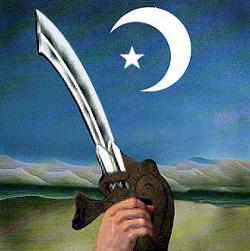 There is a famous Quaker parable which consists of an exchange between William Penn, and George Fox.
There is a famous Quaker parable which consists of an exchange between William Penn, and George Fox.
Penn is regarded as the father of Democracy in the United States. Thomas Jefferson called him “the greatest law giver the world has produced.” He was also a Quaker, a pacifist, and the founder of Pennsylvania in 1682. The principles of representative government, separation of church and state, and elimination of nobility in Pennsylvania were largely the inspiration for including those principles in the founding of the United States nearly 100 years later.
Fox was a founder of the Religious Society of Friends, also known as Quakers. He rebelled against the religious and political authorities of his day, for which he was often persecuted by those who disapproved of his beliefs. As his ministry expanded he was repeatedly imprisoned for his unorthodox Christian faith.
The story goes that William Penn was feeling ambivalent about wearing his sword, which was the custom of the day, but he worried it contradicted the pacifist principles of his Quaker faith. He turned to George Fox for advice, and asked if he should get rid of the sword. Fox famously answered, “Wear it as long as thou canst.”
This answer is indicative of the Quaker principle that Friends should be led by the divine truth in their own minds, rather than follow the opinions of others without question. Fox reasoned that if Penn could comfortably wear a sword it wasn’t truly conflicting with Penn’s highest truth, even though it conflicted with Fox’s. But the answer caused Penn to reexamine his core values, and ultimately he found that his sword became uncomfortable to carry, and he stopped.
What Penn may not have realized is that though he ultimately embraced the pacifism of the Quaker tradition, his proliferation of Democracy as the dominant social order in North America has made placing a proverbial sword in the hand of every citizen his legacy. Consider the sense in which our vote is our sword. We brandish it on bumper stickers, and lawn signs, and campaign buttons. But ultimately, our vote is the political will that we sanction being enforced on others. To vote is give testimony (In the Quaker sense of the term), that the preferences of the minority must be subservient to the command of the majority, by force if necessary.
I am not a Quaker, but I certainly aim to live my highest truth through my actions, while also respecting my neighbor’s right to pursue a different path, and I know a sword when I see one. I am done attempting to change my neighbor’s choices through the proxy of political force. But you vote for as long as you can.











